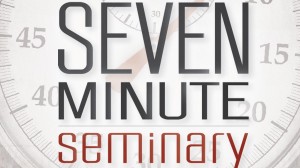
Unto Us a Child Is Born
The power of God is not the power to be more oppressive than the oppressor, but to take all that the oppressor can do, and give back love.



The power of God is not the power to be more oppressive than the oppressor, but to take all that the oppressor can do, and give back love.

When sin rules in human affairs, God’s justice is not to be found—which is why he stepped in to make things right.

God will not allow us to bask in some warm, fuzzy glow that does not face reality. If we choose to live without God, his shalom is an impossibility.

We live and produce divine fruit only because of our attachment to him, but it is through us that his fruit is picked by the world.

Jesus asked that God would glorify him in the last hour so that he could finish his task of glorifying God on earth by completing the work God had given him.

The Warrior promised to the Israelites is the Messiah himself, come to defeat sin in a climactic way.

God will not allow us to bask in some warm, fuzzy glow that does not face reality. If we choose to live without God, his shalom is an impossibility.

The end of the book of Isaiah teaches us that God himself will graciously enable us to fulfill the call to righteous living.

So what does Yahweh say to these discouraged, disillusioned, defeated, sinful people? Read more from John Oswalt as he introduces an important section in the book of Isaiah.

In today’s Seven Minute Seminary video, Dr. John Oswalt encourages us to believe and receive the biblical promise that the Holy Spirit enables Christians to live for and please God, day by day, without limit, and without rival.

Did the exodus happen? In this Seven Minute Seminary video, Dr. John Oswalt explains reasons to believe the event was in fact a historical reality. He focuses on three questions: 1) Does it matter whether the exodus was a historical event? 2) What is the difference between “historical” and history? 3) What do we learn from the exodus?

Is Advent in the Bible? In this Seven Minute Seminary video, Dr. John Oswalt explains how the Old Testament’s story about promise, tragedy, and hope all point to the highly anticipated Messiah, and which serves as a unifying thread from Genesis to Malachi.